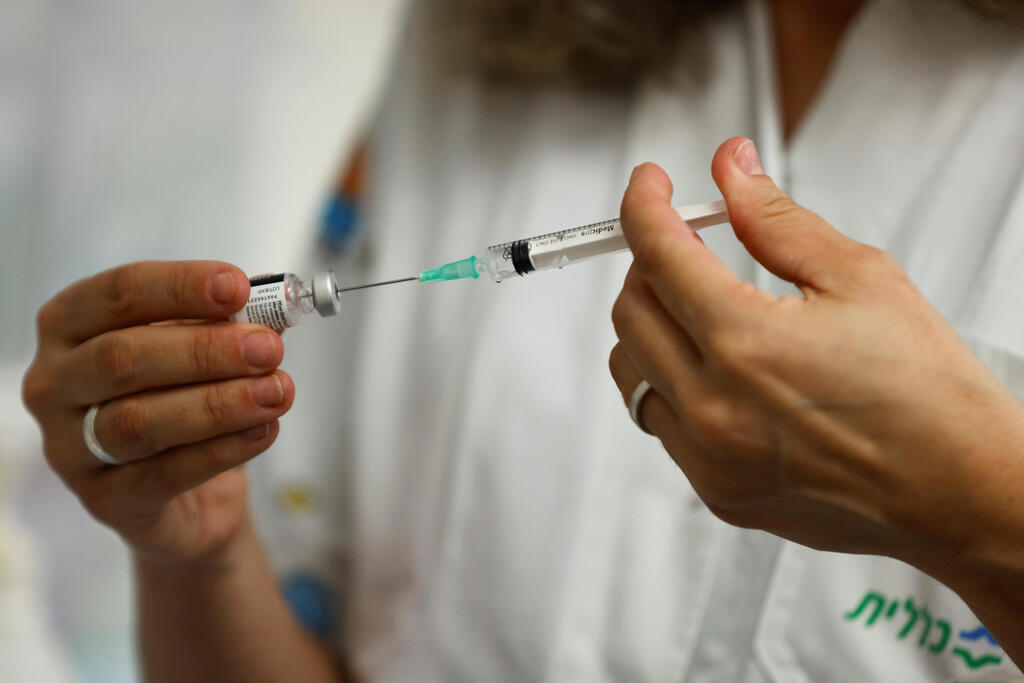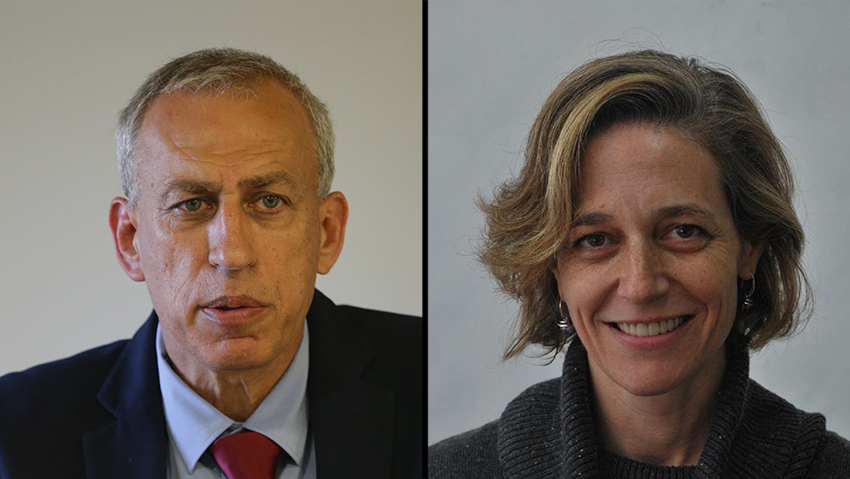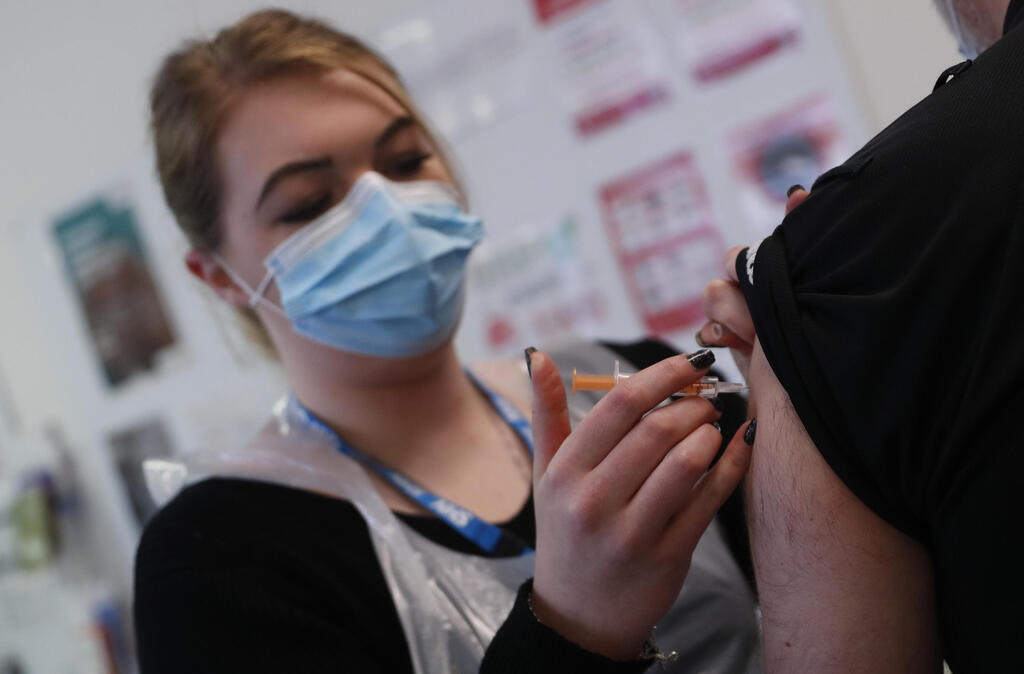Getting your Trinity Audio player ready...
Health experts criticized the Health Ministry on Tuesday after it announced the COVID-19 vaccine was less effective against the Delta variant compared to previous virus strains without appending the data on which it based its claim or the methods it employed to process the data.
"We saw a decrease in the vaccine's efficacy, but there are several possible factors that could have caused this," said Prof. Doron Gazit, a researcher at the Hebrew University in Jerusalem. "For example, the fact that so far, most confirmed cases were recorded in communities with high vaccination rates — this variable could very much affect the analysis."
3 View gallery


A nurse holding a syringe and a vial of coronavirus vaccine at a clinic in Tel Aviv
(Photo: Reuters)
According to a ministry statement Monday, the Pfizer/BioNTech coronavirus vaccine was 64% effective in preventing both infections and symptomatic illness since June 6, pointing to an almost 30% decline from past reports which coincides with the spread of the Delta variant in Israel.
Israelis who came into contact with a confirmed coronavirus patient were urged to get tested regardless of their vaccination status.
The ministry did note, however, that the vaccine was still 93% effective in preventing hospitalizations and serious COVID-19 illness.
3 View gallery


Health Ministry Director General Prof. Nachman Ash and Public Health Director at the Health Ministry Prof. Sharon Alroy-Preis
(Photo: Alex Kolomoisky)
The ministry did not respond to repeated Ynet inquiries for the raw data the study was based upon or the methods it used to analyze the figures.
Dr. Oren Kobiler, a virologist at Tel Aviv University's School of Medicine, questioned some of the assertions the ministry had made in its study, like assuming that the relatively small unvaccinated population in Israel was comparable to those who did get the jab.
"Since [the unvaccinated population] is so small, the assumption that they behave like the rest of the population is problematic to me," he said. "Therefore, the analysis should be more specific, since there are not many unvaccinated people over 50. Only about 10% are unvaccinated and I think we can't assume that whatever is relevant for this 10% also goes for the other 90%, so we can not compare one another as it pertains to preventing symptomatic or asymptomatic infection.
"On the other hand, the British have much more data on the Delta variant since they have been dealing with it for months now. They say that the vaccine is still 80–90% effective. I do not know what to make of this data. I am trying to figure out where this is coming from but I do not feel at ease knowing the UK relies on much more data and reaches an efficiency rate higher than 64%."
Kobiler argued that further research would prove the vaccine was still highly effective in preventing coronavirus infections.


